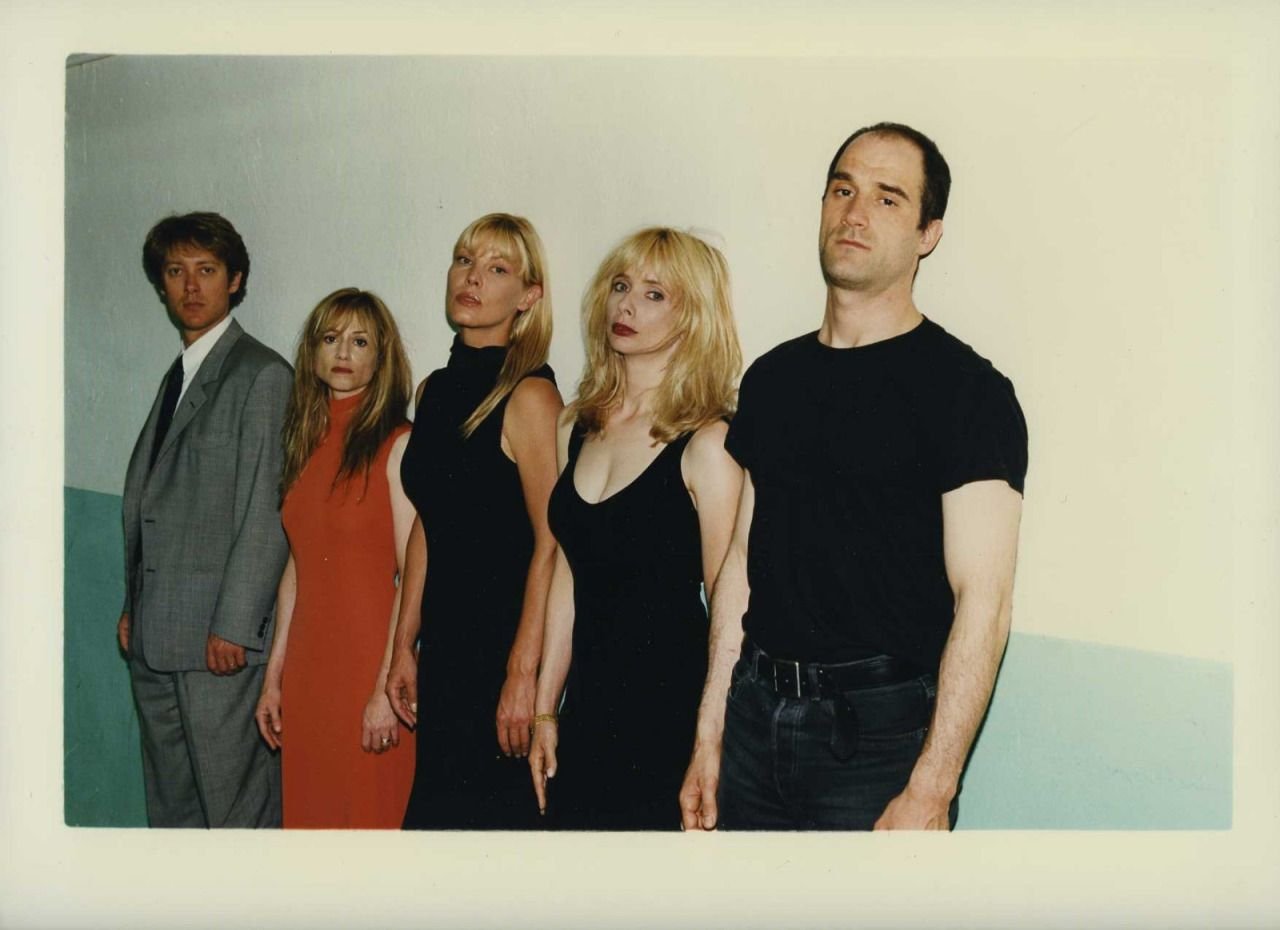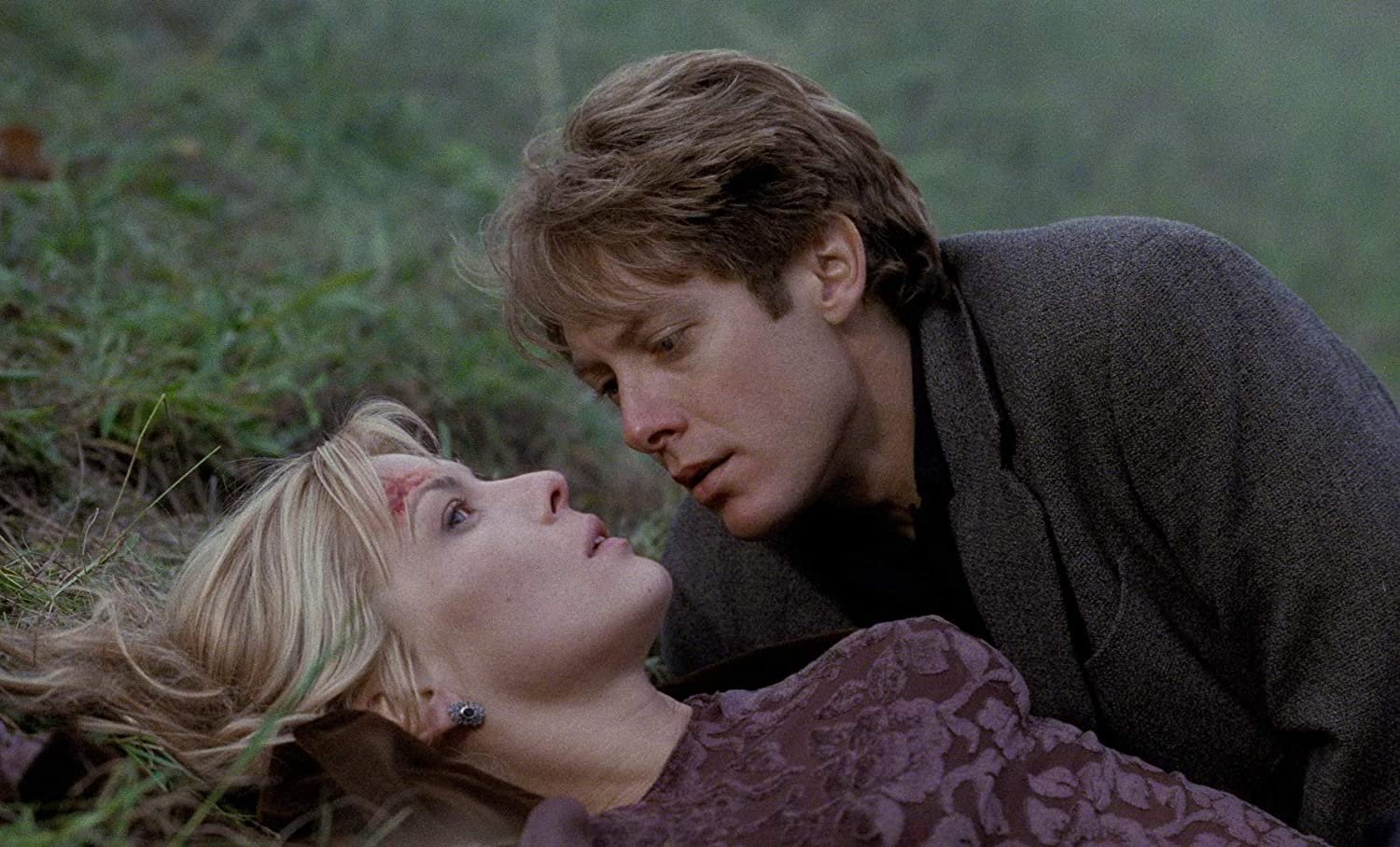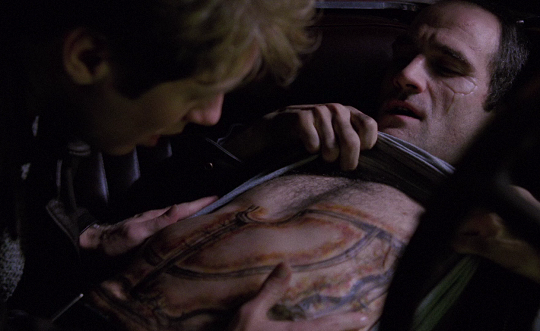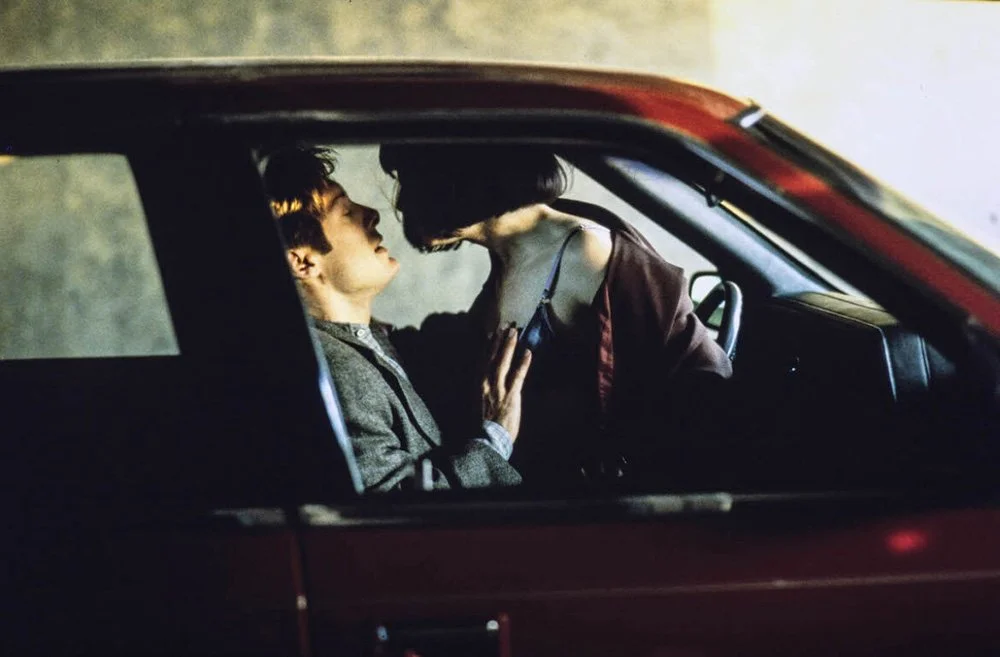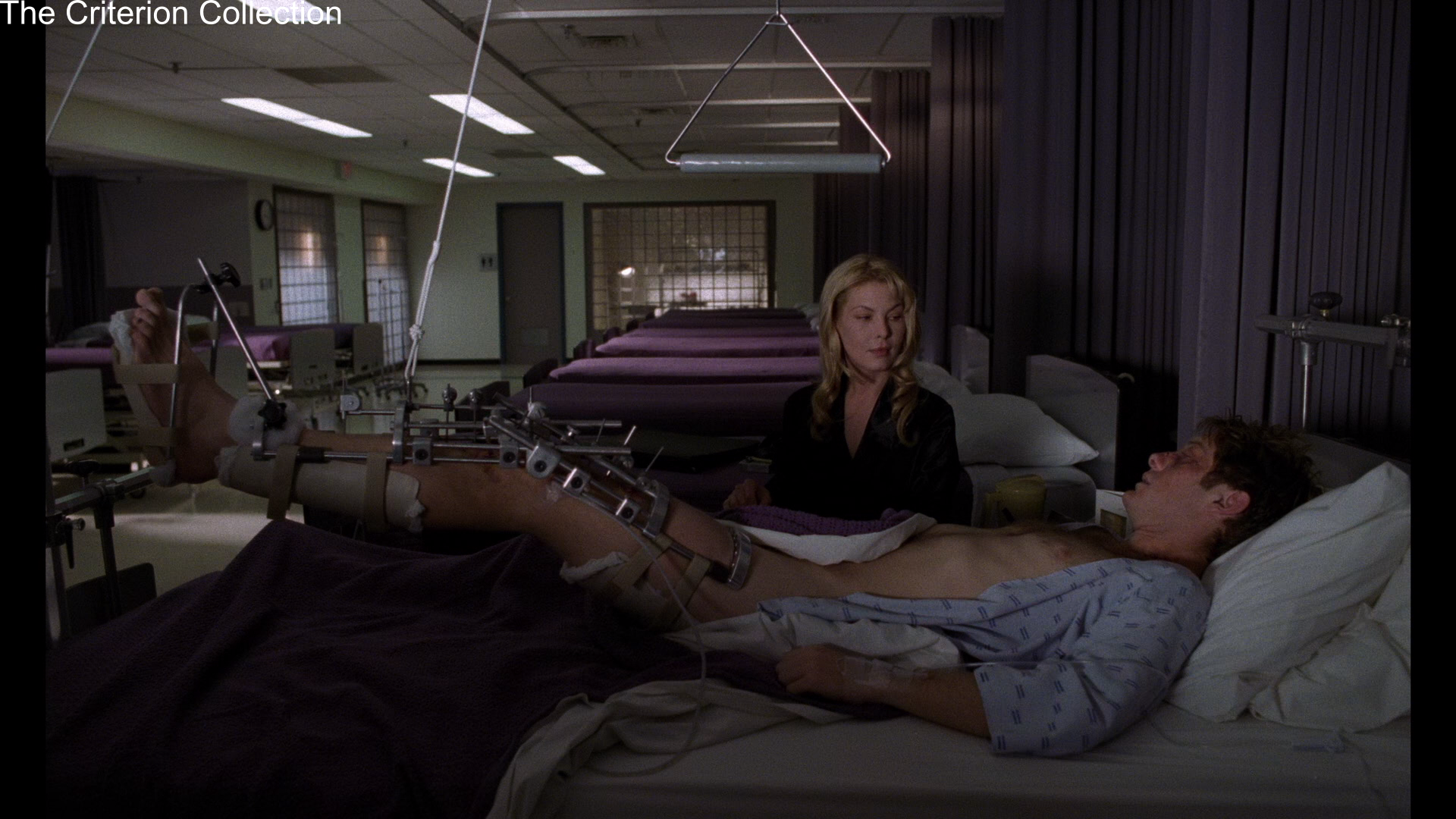With the news breaking recently that the legendary David Cronenberg is returning to cinemas this year with Crimes of the Future, a film that reportedly will hearken back to his more transgressive genre roots, I decided to check out one of his more notorious efforts to celebrate. I had never seen his 1996 adaptation of JG Ballard’s Crash before last night. The reviews and anecdotes I’d experienced varied wildly on its quality, but I took everything with a grain of salt, as I remember the moral outrage and controversy the film had generated upon its initial release. I may have put off watching it for so long because the king of body horror’s grotesque predilections has sometimes in the past even put this seasoned gore-hound off his lunch. This is all to say, Crash’s reputation preceded it.
James Spader is our lead, the preternaturally calm filmmaker James Ballard. James and his wife, Catherine (an even chillier Deborah Kara Unger), have an open marriage and enjoy relaying the details of their respective trysts to each other while in bed. One day, James has a head-on collision with another car, which results in the death of the other car’s driver. When he comes to the smoking wreckage, he locks eyes with Helen (Holly Hunter), the dead man’s wife, as she exposes her breast and struggles to free herself from her car. The two cross paths again in the hospital, which is where we meet Vaughan (an absolutely superb Elias Koteas).
Vaughan displays an unusual interest in the details of James and Helen’s grisly experience and their various injuries. After they are discharged, James and Helen coincidentally meet at the police impound lot where they are inspecting their cars. The situation strangely arouses them and they have sex in James’ destroyed vehicle. Soon after, they attend an illegal street art performance orchestrated by Vaughan that is a recreation of the crash that killed James Dean. When officers from the Department of Transportation arrive and break up the scene, James and Helen escape with Vaughan to the latter’s workshop.
It’s becoming obvious that Vaughan has a sexual fetish related to car crashes and the injuries inflicted on victims. At the workshop, we meet other members of Vaughan’s circle who share his bizarre kink, including Rosanna Arquette’s hobbled Gabrielle. Though somewhat uncertain at first, James is soon drawn into this strange world that explores a blurred line between sex and violence. We also get Peter MacNeill and Nicky Guadagni in smaller roles.
Cronenberg’s script embraces the weirdness and maintains a clinical detachment that emphasizes character and tone, blunting the utterly bonkers premise. In less capable hands, the film could’ve turned out exploitative or over the top, but the auteur crafts a reality that’s maybe just to the side of our own. There’s an elegance here that is unsettling and dark, but judgment-free. Dialog is a little heightened, retaining a prose element befitting of a novel adaptation. While it’s also a testament to the actors, the character work is exceedingly believable and human despite the increasingly disturbing circumstances.
Speaking of the performances, Crash is anchored by a group that is all in on the unusual conceit. Spader is reserved and curious while anchoring the piece. Unger and Hunter are both very good, as well. However, Koteas steals this movie. His Vaughan wanders the weird wasteland between a charismatic cult leader and junkie philosopher. He is absolutely captivating. I already enjoyed him as an actor, but this may be his greatest role, for me. However, it must be recognized that he’s allowed to get a little flashier than his costars and they support him admirably.
Peter Suschitzky’s cinematography is dreamy and alluring. Shot compositions are flat, but painterly and beautiful. Movement is languid. Sex scenes, of which there are plenty, are graphic but are portrayed with an almost dispassionate distance. It’s a horny movie, but it feels alien at the same time. Damaged vehicles and canyon-esque fleshy scars are regarded with pleasurable care. All in all, it’s impressive work.
It should be noted that the film isn’t really all that gory. Its explicitness arrives in the form of plentiful nudity and the implications of the conceit. It can be an uncomfortable watch at times, but I feel it’s intellectually provocative and not gratuitous. If you wanted to argue that the sex scene between Vaughan and Catherine is upsetting, I wouldn’t disagree, but I think it fits with the film’s themes about addiction and the dehumanizing aspects of modernity.
Perhaps my favorite element of the film is Howard Shore’s fantastic score. The moody and guitar-heavy suite sounds like a slow and eerie intro off a lost Slayer album from the mid-’90s. This flick is absolutely drenched in atmosphere and the music plays a big part in generating that. I will be purchasing the CD today.
Hot damn, I was blown away by David Cronenberg’s Crash. With a runtime of 100 minutes, it sticks around long enough to draw you into its kinks and then gets out (or off) at just the right time. While I wouldn’t call it an erotic thriller, it nevertheless takes some cues from the genre and then promptly spins them off into strange and hitherto unexplored (nether) regions. Highly recommended for fans of licking scars, rubbing dents, and hailing the new flesh.
Michael Cavender

